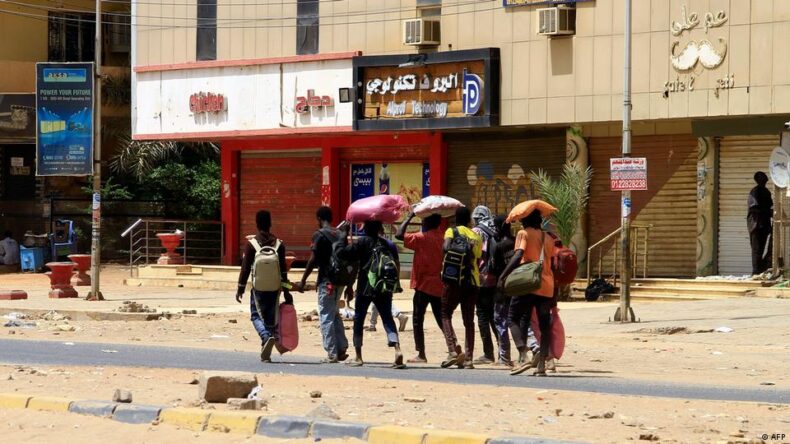The 4-day long ongoing power clash between the army and paramilitary forces within the capital city of Sudan, Khartoum has reported the killing of around 200 people and around 1800 wounded. Medical aid and food shortage is the major concern in the city. Power politics is gaining more momentum than ever.
The Power struggle between Sudan’s army chief Fattah al-Burhan and his deputy, Mohamed Hamdan Daglo, who commands the powerful paramilitary Rapid Support Forces have taken an unpleasant turn in the city on Saturday. The Power Struggle in the 21st century has become a new paradigm for civil unrest as patience and rule-based selection of the candidates are somehow being faded in West Asia. Both groups have claims to control certain sections of the Capital and are refusing to give away such aggression.
The natives of the countries and analysis say that such situations are unprecedented in the city because of its nature as a chronically unstable country where power seems to have a greater emphasis than a common good i.e. peace and security. It is believed that despite the suggestion for a ceasefire from the diplomats it is unlikely to stop the clash.
In the last few days of Ramadan,, unfortunately, the residents are facing air strikes, gunshots, and heavy artillery attacks leaving people in despair. Such conditions are not what common people look forward to. They are living in the situation of utmost danger and uncertainty of life with food shortages and delayed medical supplies, Power shortages, sudden cuts in electricity, and a crisis for even drinking water is a matter of concern. The civilians are on the roads asking for necessities but are facing backlash. Some of the students are trapped inside the oil company.
On Monday UN Secretary-General mentioned and stated that an immediate cease-fire is required in the city as there are devastating repercussions with Medical Buildings severely damaged with some almost going out of service. The World Health Organisation has also warned about the situation of Khartoum as health cooperation has “run out of blood” , transfusion equipment, intravenous fluids and other vital supplies.
The largely wounded people amongst them are the young children who could prove to be an asset to the country but they are being victims of this unprecedented clash. In North Darfur there is only one hospital that is running, El Fasher but will be able to sustain in the future is a big question as the situation remains unsolved and there are no signs of a ceasefire.
The US, UK, and EU who have larger interests and influence in West Asia are calling for an immediate cease-fire. They have suggested an interim dialogue between the two groups but the decision from the Capital seems to be unheard of.













